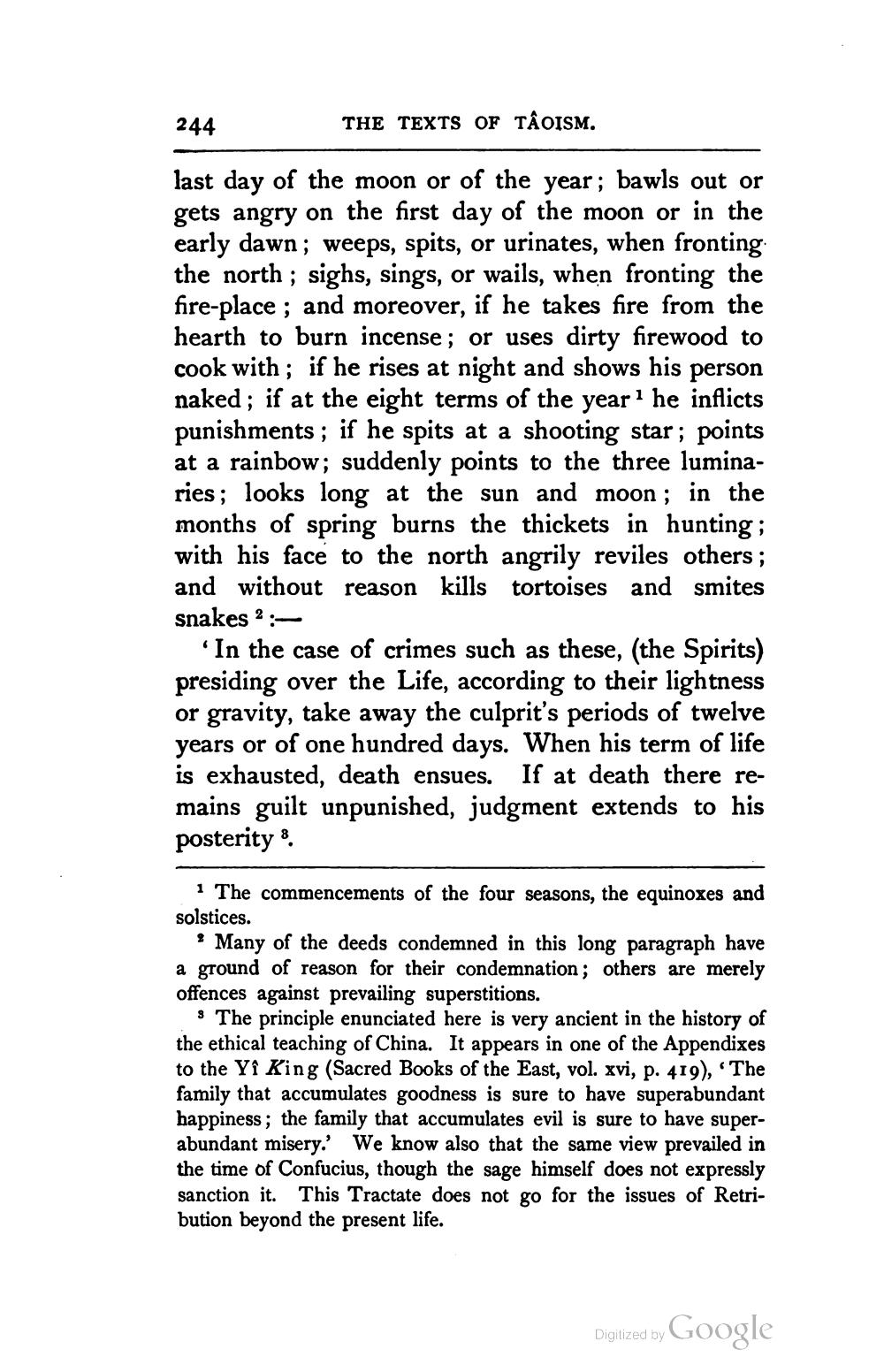________________
244
THE TEXTS OF TÂOISM.
last day of the moon or of the year; bawls out or gets angry on the first day of the moon or in the early dawn; weeps, spits, or urinates, when fronting: the north ; sighs, sings, or wails, when fronting the fire-place; and moreover, if he takes fire from the hearth to burn incense; or uses dirty firewood to cook with; if he rises at night and shows his person naked ; if at the eight terms of the year he inflicts punishments; if he spits at a shooting star; points at a rainbow; suddenly points to the three luminaries; looks long at the sun and moon; in the months of spring burns the thickets in hunting; with his face to the north angrily reviles others; and without reason kills tortoises and smites snakes :
'In the case of crimes such as these, (the Spirits) presiding over the Life, according to their lightness or gravity, take away the culprit's periods of twelve years or of one hundred days. When his term of life is exhausted, death ensues. If at death there remains guilt unpunished, judgment extends to his posterity &
1 The commencements of the four seasons, the equinoxes and solstices.
? Many of the deeds condemned in this long paragraph have a ground of reason for their condemnation; others are merely offences against prevailing superstitions.
The principle enunciated here is very ancient in the history of the ethical teaching of China. It appears in one of the Appendixes to the Yî King (Sacred Books of the East, vol. xvi, p. 419), 'The family that accumulates goodness is sure to have superabundant happiness; the family that accumulates evil is sure to have superabundant misery. We know also that the same view prevailed in the time of Confucius, though the sage himself does not expressly sanction it. This Tractate does not go for the issues of Retribution beyond the present life.
Digitized by Google




